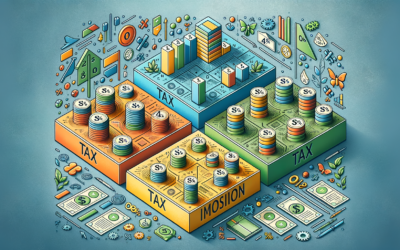Blog of AlterTax, law firm
Welcome to our tax blog, an invaluable resource for anyone seeking to navigate the complex and ever-changing world of taxation.
Whether you’re a seasoned finance professional, an entrepreneur managing the tax realities of your business, or simply an individual looking to optimize your tax situation, our blog offers valuable insights, practical advice and in-depth analysis.
The declaration of profits for liberal professionals
Liberal professionals (lawyers, doctors, authors, artists, sportsmen…) come under the BNC (non commercial profits) regime of article 92 of the CGI. As such, they are required to file annual profit declarations under the “controlled declaration” regime, unless their profits are less than €72,600 excluding tax, which allows them to benefit from the micro BNC regime (provided that the nature of their activity allows them to opt for this regime).
Abuse of rights: the Conseil d’Etat validates an extensive conception of the notion of artificial arrangement
The Conseil d’Etat upheld the Versailles Administrative Court of Appeal’sdecision of April 1, 2021,No. 20VE002388 and 20VE002389, upholding the reassessments notified to Dassault Systèmes by the French tax authorities, in theConseil d’Etat’s decision of May 31, 2022, No. 453 175, Société Dassault Systèmes.
The declaration of profits for traders
Individuals who carry out a commercial, industrial or craft activity are taxed under the industrial and commercial profits regime (BIC). They are taxed according to their importance in micro-BIC, or in the real or simplified real regime.
Resources
French rights
Transfer pricing (art 57 CGI)
Transfer pricing documentation
Public finance website
Transfer pricing declaration form
CBCR form
Transfer pricing guide for SMEs
Technical resources
Transfer Pricing In France
OECD Transfer Pricing Guidelines
Fiscalité internationale
Overview of the French tax system
France’s international tax treaties
International law
BEPS Project
Transfer pricing action report (13)
Tax definitions
Taxation concerns the methods used by governments to collect revenue, mainly through taxes. This section clarifies these concepts, explaining the different types of tax and their impact on individuals and businesses.
Tax rebate
Tax rebate The tax system is a complex and ever-changing universe that can sometimes be a source of heavy burdens for taxpayers. Fortunately, schemes such as tax relief exist to reduce these charges...
Social security contributions
Social security contributions The social contribution is a central element of national solidarity and the financing of the French social model. Through a variety of levies, it plays a decisive role...
Tax Brackets
Tax brackets Tax brackets are one of the cornerstones of modern tax systems, directly influencing everyone's contribution to public finances. This article explores this essential tax mechanism in...
Marginal Tax Rate
Marginal Tax Rate The marginal tax rate is a central concept in taxation, having a significant impact on taxpayers' financial lives. This indicator plays a crucial role in tax planning and in...
Taxable income
Taxable income The world of taxation is full of technical terms that are crucial to understanding how our taxes are calculated. Among these, "Taxable Income" is a central element of our tax return...
Tax system
Tax system The tax system of a specific country or jurisdiction is a fundamental element in understanding its economic and legal structure. It refers to all the laws governing the way in which...
Family quota
Family quota The concept of the family quotient is a crucial component of the French tax system. It is used to adjust income tax according to the size and composition of the tax household. Thanks to...
Tax obligations
Tax obligations Any entity or individual subject to a given tax jurisdiction must comply with rules and procedures defined by law, commonly referred to as tax obligations. This responsibility...
Liquidation De L’Impôt
Liquidation De L'Impôt Understanding tax settlement is essential for any taxpayer or company wishing to meet its tax obligations efficiently and in compliance with current legislation. This article...
